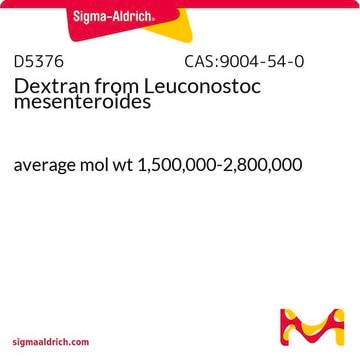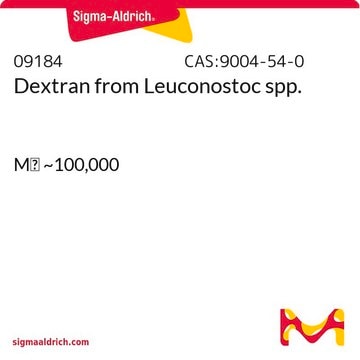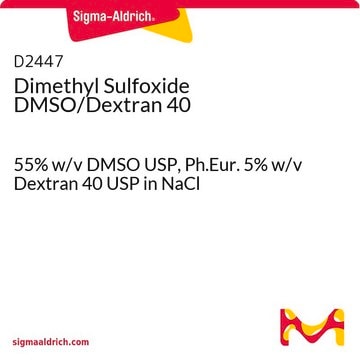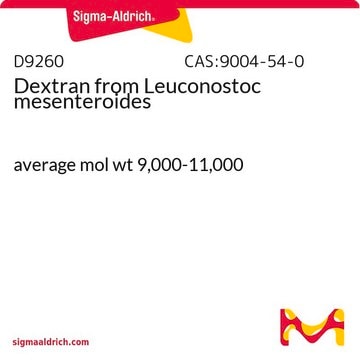D8802
Dextran solution from Leuconostoc mesenteroides
20 % (w/w) (Autoclaved)
Synonym(s):
repeating α-linked D-glucopyranosyl units, synthesized from sucrose by Leuconostoc mesenteroides
About This Item
Recommended Products
form
liquid
Quality Level
mol wt
average mol wt ~500,000
concentration
20 % (w/w) (Autoclaved)
technique(s)
titration: suitable
color
colorless
density
1.00-1.20 g/mL
application(s)
hematology
histology
storage temp.
2-8°C
InChI
1S/C18H32O16/c19-1-5(21)9(23)10(24)6(22)3-31-17-16(30)14(28)12(26)8(34-17)4-32-18-15(29)13(27)11(25)7(2-20)33-18/h1,5-18,20-30H,2-4H2
InChI key
FZWBNHMXJMCXLU-UHFFFAOYSA-N
General description
Application
Storage Class Code
10 - Combustible liquids
WGK
WGK 2
Flash Point(F)
Not applicable
Flash Point(C)
Not applicable
Choose from one of the most recent versions:
Certificates of Analysis (COA)
Don't see the Right Version?
If you require a particular version, you can look up a specific certificate by the Lot or Batch number.
Already Own This Product?
Find documentation for the products that you have recently purchased in the Document Library.
Customers Also Viewed
Our team of scientists has experience in all areas of research including Life Science, Material Science, Chemical Synthesis, Chromatography, Analytical and many others.
Contact Technical Service











